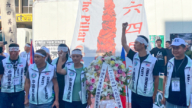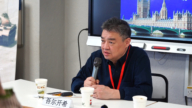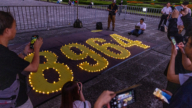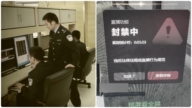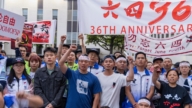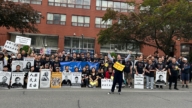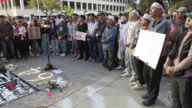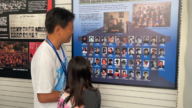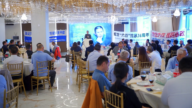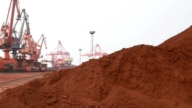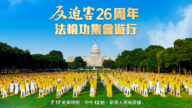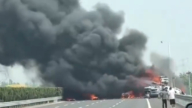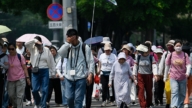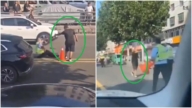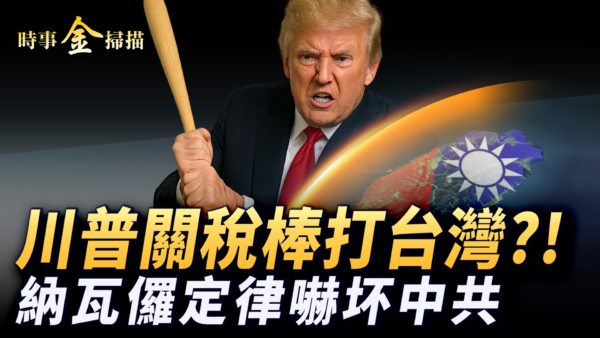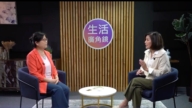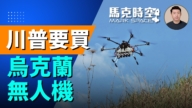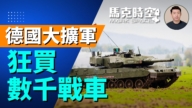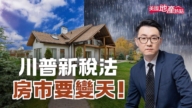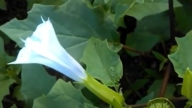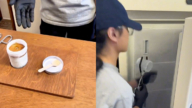【新唐人2014年02月05日讯】大年初三,是中国民俗祭奠亲朋故友亡灵的日子。2月2号,来自中国大陆各地的30位民间人士,聚集在河南省滑县,公祭前中共中央总书记赵紫阳、胡耀邦和“六四”死难者,也正式拉开了中国民间纪念“六四”25周年的序幕。
组织者选定在赵紫阳的家乡——河南省滑县,举行公祭活动。一个长6米,高4米,寓意“六四”的巨型喷绘展板被竖立了起来。这个展板是以“六四”学生在天安门广场请愿的盛大场面为背景,并配上赵紫阳和胡耀邦的头像。
来自大陆各地的30位民间人士到场祭奠,赵紫阳的两名同乡也加入祭奠活动。这一天,当地气温下降到零下13度,寒风刺骨,但还是吸引了数百名村民到场围观。
前广州八九学生运动领袖陈卫,代表公祭者宣读了公祭词。
她说:“我们不会因为岁月的流逝而忘记那些死难者,他们是中华民族五千年文明史中层出不穷、精忠爱国的千千万万英烈的一部分,他们是现代历史中为华夏反腐败、反专制、争民主、争自由而英勇献身的杰出代表。……遗憾的是,这一切由于六四的枪声而戛然终止。”
公祭词呼吁为“六四”正名。
前美国哥伦比亚大学访问学者陈破空:“他们把民间和官方的人同时拿来纪念,实际上是对当今当权者的一个敲打。当年六四民主运动的主题是反腐败、要民主、爱国,那么今天,中国仍然面临反腐败的问题,腐败不是越来越少,而是越来越多。”
公祭活动的牵头人之一于世文,他在接受《美国之音》采访时表示,中共当局并没有阻拦或干扰公祭活动,只是派出便衣警察在现场附近监视。
陈破空指出,中共最高领导人习近平的父亲习仲勋,是胡耀邦和赵紫阳的忠实跟随者,今年,民间同时纪念胡、赵两人,是希望能化解官民之间的僵局。
陈破空:“我想以陈卫和于世文为代表的这些民间人士所做的大胆的创举,是希望打开中国这么一个僵化的局面,希望在六四事件上,找到一个突破口,来解决中国积重难返的这些问题。”
不过,于世文指出,中共当局没有干扰他们的公祭活动,并不表明放松了对民运和异议人士的打压,只是表明中共新的领导层的思维方式发生了改变。
据了解,去年清明节前,以陈卫、于世文牵头的这批民间人士,就曾经到习近平的仕途发祥地——河北省正定县,举行公祭“六四”死难者的活动。结果,事后于世文被当局扣押询问了24个小时。而与“新公民运动”创始人许志永案有密切相关的民主人士赵常青,也在参加这次公祭活动后不久被逮捕。
除了大陆民间举行公祭活动,海外纪念“六四”25周年的活动也如火如荼的展开。纽约、台北、北京三地民运人士,今年元旦,启动“天下围城”活动,开始了接力绝食。另外,美国蒙大拿大学退休教授斯蒂芬•莱文(Stephen Levine)也在白宫网站上,发起纪念“六四”的签名活动。
陈破空:“六四天安门事件已经过去了四分之一个世纪,而六四作为一个很明显的正邪之分,学生和民众所代表的反腐败、要民主诉求,和官方代表的要独裁、要腐败那种对立,在这种情况下,官府对手无寸铁的人民实行屠杀,这样的正邪分明、一目了然,所以人民都期待像六四这样的事情能得到和平公正的解决。”
陈破空指出,经过了25年,当年沾上“六四”鲜血的那些官员,几乎都已不在位,中国百姓更期待当今领导人能够正视这段历史,解决这桩历史血案。
不过,赵紫阳的秘书鲍彤,日前被当局限制。
曾参与八九民运的旅美民主人士杨建利向《美国之音》表示,25年过去了,中共当局仍然恐惧各界对“六四”的发声,这是一个制度性问题,制度不改变,类似问题就会一直发生。
采访/常春 编辑/陈洁 后制/钟元
Chinese Activists Hold Commemoration to Mark 25 Years Since June 4 Incident
The third day of Chinese New Year is traditionally when
Chinese pay homage to the souls of relatives and friends.
On February 2, a public memorial took
place in Hua County, Henan Province.
This was to commemorate former Communist Party
General Secretary Zhao Ziyang, Hu Yaobang, as
well as victims of the Tiananmen Square Massacre.
This also signalled the start of the 25th commemoration
of the June 4 massacre by the general Chinese public.
The memorial took place in Hua County,
Henan Province, where Zhao Ziyang was born.
A giant panel 6 meters long and 4 meters high,
representing June 4, was displayed at the memorial.
It displayed a scene of student protests in Tiananmen
Square, and pictures of Zhao Ziyang and Hu Yaobang.
30 people from across China visited, including
two people from Zhao Ziyang’s hometown.
The memorial took place in temperatures
that were 13 degrees below zero Celsius.
Despite the bitter winds, the memorial
went on to attract hundreds of villagers.
Chen Wei, a former student movement leader
from Guangzhou, read out a memorial address
on behalf of the public memorial service.
Chen Wei: “We will not forget the
victims with the passage of time.
They are patriotic heroes as part of the
5,000 years of Chinese civilization history.
They are the outstanding representatives
of contemporary Chinese people.
People who devote and sacrifice for democracy and
freedom in the fight against corruption and authoritarianism.
Unfortunately, this was abruptly terminated
due to the gunfire in Tiananmen Square."
The memorial address called for
rectification for the June 4 massacre.
Chen Pokong, former scholar, Columbia University:
“It is a blow to the current leadership that they
commemorated activists and officials at the same time.
The June 4 student movement was about
anti-corruption, calling for democracy and patriotism.
China today still faces the problem
of corruption, and has become worse."
Yu Shiwen was also an organizer of the memorial service.
Yu Shiwen told Voice of America that the Chinese
authorities didn’t obstruct or interfere with the activities.
They did have plainclothes police surveillance in the vicinity.
Chen Pokong points out that current leader
Xi Jinping’s father, Xi Zhongxun, was a faithful
follower of Hu Yaobang and Zhao Ziyang.
The public memorial is hoped to resolve the
impasse between the regime and the people.
Chen Pokong: “I think the NGO represented by
Chen Wei and Yu Shiwen have taken a bold initiative.
They hope to make a breakthrough to solve these
diehard problems in China, such as the June 4 incident."
However, Yu Shiwen indicated that even though the authorities
did not interfere with their memorial activities, it does not mean
the suppression of pro-democracy movement and dissidents
have been relaxed,
but rather that the new leadership has a different way of thinking.
It is understood that last year Chen Wei and Yu Shiwen had
held a public memorial service for the June 4th victims at
Zhengding County, Hebei Province where Xi Jinping started
his political career.
After the memorial, Yu Shiwen was detained for 24 hours for
interrogation.
New Citizens’ Movement activist Zhao Changqing was also
arrested soon after the memorial service.
Events commemorating the 25th anniversary of
June 4 have also taken place outside of China.
At New Year, activists from New York, Taipei and Beijing
started a hunger strike, as part of a ‘World Siege’ campaign.
Professor Emeritus Stephen Levine from
the University of Montana launched a
petition on the White House Website.
The petition, “Calls For Recognition
Of Tiananmen Massacre Victims."
Chen Pokong: “Even though it’s been a quarter
of a century, the Tiananmen incident provides
an obvious distinction between good and evil.
The Chinese people and the students were
demanding democracy and anti-corruption.
This is the opposite of dictatorship
and corruption of the regime officials.
The massacre of defenseless people
conducted by officials is clearly wrong.
People are hoping for peace and justice
in resolving the Tiananmen incident."
Chen Pokong further suggests that after
25 years, the officials who were stained with
blood during June 4 have nearly all retired.
People hope the current leaders will face up to
that period of history, and provide some resolution.
However, Zhao Ziyang’s secretary Bao Tong
has recently been restricted by the authorities.
Yang Jianli was a participant in the 1989 student protests.
Yang Jianli told Voice of America that 25 years
later, the Chinese authorities still fear any
voices that are outspoken about June 4.
This suggests that it is an issue of the system, and similar
problems will continue as long as that system remains.
Interview/ChangChun Edit/ChenJie Post-Production/ZhongYuan


